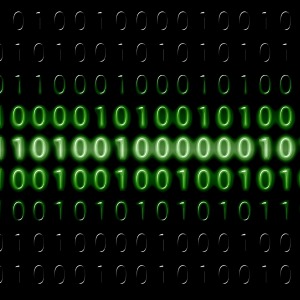Computers cannot yet think, feel or exercise judgement but they are better at distributing expertise in society and can outperform professionals through sheer processing power, Richard Susskind has said.
Author and legal adviser Mr Susskind spoke at a symposium, The Future of Modern Professionalism, hosted by UNSW and Allens last week.
To continue reading the rest of this article, please log in.
Create free account to get unlimited news articles and more!
"It is hard to avoid the conclusion that there will be a steady decline in the need for human professionals in the long run, 20 or 30 years from now," he said.
According to Mr Susskind, the legal profession is the “traditional answer” to the question of how we produce and distribute practical expertise in a “print-based industrial society”.
“The professions all address one basic shortcoming we have as human beings and that is that we have limited understanding,” he said. “In our daily lives we don't know enough to get by and so we seek the guidance of others – specialists."
However, as society progresses into the technology-based internet society, different ways of making expertise available will emerge, Mr Susskind explained.
"In the long run, by which I mean decades from now, machines are going to become increasingly capable," he said. "This means they will take on more and more of today's tasks."
Sharing research published in his new book, The Future of the Professions, co-authored by Daniel Susskind, Mr Susskind identified new ways that society will share expertise using technology.
“There's the network experts model,” he said. “This is not so radically different in some ways. The economists refer to this as 'human beings on tap'.”
This model is epitomised by Axiom, a business that provides clients with access to a community of freelance lawyers, he said. Companies such as Axiom can operate at a far lower cost than private law firms, which have high overheads, according to Mr Susskind.
In some cases complex tasks will be taken on by machines, creating a class of 'paraprofessionals' who “perform at a higher level as an empathetic provider dipping into computer system expertise”, said Mr Susskind.
Other new phenomena include the “knowledge engineering model”, such as document automation systems, and the “communities of experience model”, which is where the recipients of professional advice offer peer-to-peer guidance on problems that would have previously been given to experts, according to Mr Susskind.
In the future compliance knowledge could even be embedded in the systems and processes of clients, alleviating the need for professionals altogether, he continued.
Lastly, the “machine-generated model” hands entire problems over to computer systems, which will be effectively generating new knowledge, Mr Susskind concluded.
There are already some extreme examples of technology replacing professionals, he said. Even one of the oldest professions, the clergy, is being reinvented with virtual online churches and confession apps becoming a reality.
These emerging models in the professions are underpinned by the exponential growth in technologies, according to Mr Susskind.
“There is a view that by 2020 the average desktop will process at the speed of about 1016 calculations per second,” he said.
“That's about the same processing power, neuroscientists will tell us, as the human brain. And by 2050, if you follow the curve, the average desktop machine will have more processing power than all of humanity put together. That's simply if processing power continues to double every two years and it has done for the last 50 years.”
The question of whether machines can replace human functions of thought and feeling are “slightly beside the point”, continued Mr Susskind.
“A computer doesn't need to exercise judgement,” he said. “We don’t need these systems to be thinking and feeling to outperform us.”
The infusion of technology into the professions is creating a number of significant changes already, according to Mr Susskind.
“There is a move away from the bespoke form of services, the professions as some form of craft, increasingly to standardisation and then to systemisation,” he said.
“We are also finding a decomposition of professional work. Professional work is being broken down into component parts, disaggregated."
A pattern of “routinisation” has also emerged, where work can be done in a standardised way, said Mr Susskind.
The tech revolution is a welcome one, as the professions are “antiquated and use outdated methods”, according to Mr Susskind.
“Most of our systems are creaking. They are unaffordable. They are opaque, it's hard for recipients of service to judge the quality of service being provided and they also under perform,” he said.






